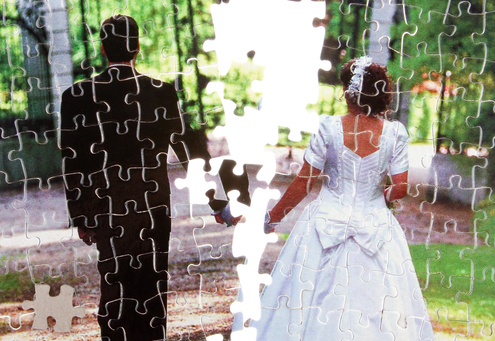News
Pension and divorce: what happens and what should you consider?

The latest statistics estimate that nearly half of marriages in England and Wales will end in divorce. With all the reforms to retirement income, we look at what divorce means for your pension and how you can protect your assets before you tie the knot.
Sobering figures from the Office for National Statistics reveal 42% of marriages in England and Wales end in divorce, and 34% of these are expected to end by the 20th wedding anniversary.
With data also revealing a rise in the number of ‘silver separators’ it’s likely many assets have been shared for years and planned together, so it can be difficult to untangle them during divorce proceedings.
A marriage can be dissolved following a petition for divorce and the granting of a decree absolute, or it can be annulled following a petition for nullity and the awarding of a decree of nullity.
If you’re facing divorce proceedings, here’s what you need to know, and below we explain some steps you can take to protect your assets before you say ‘I do’.
What are the rules when it comes to dividing assets?
Mike Morrison, head of platform technical at AJ Bell, says many divorce cases are settled out of court with the couple deciding to share and divide the house, children and money, usually in a 50/50 split.
It’s only usually when an amount is disputed that the case goes to court and here the judge will look at and take account of whether each party can maintain their current lifestyle, that they can carry on and live their life with the same ability as when they were married.
Morrison says: “Generally the court will work out the day-to-day needs of the individual and will aim to ensure that the husband or wife can meet any shortfalls.”
The law aims to divide assets during divorce and pensions are just one package that come under your assets.
While some assets are easier to divide than others, pensions are a bit more difficult, depending on whether you have a Defined Benefit (DB) or Defined Contribution (DC) scheme and whether you’ve started drawing on your pot already when it comes to filing for divorce.
Karen Barrett, chief executive of Unbiased.co.uk, says pensions are often the most problematic area. “Women tend to have lower pensions than their husbands, due to average lower earnings and also to the fact that women may take career breaks or return to work part-time after having children. Achieving a fair settlement here is therefore tricky.”
She says you should ask your IFA to perform a full pension valuation and urges individuals not to accept the scheme’s own estimate.
“Remember some schemes have additional valuable benefits, such as guaranteed annuity rates, which go above and beyond the actual money in the pot. Matters can be even more complicated with a DB pension, as the valuation depends on numerous factors, and you may need to decide whether or not to convert the pension into a lump sum.”
Before the introduction of Pension Freedoms in April 2015 – it allows those aged 55+ unfettered access to their pension pots with the first 25% being tax-free – retirees had to buy an annuity in order to pay off an ex-spouse.
But as DB schemes were a stream of income rather than a chunk of money that can be divided between the partners, it was much harder to divide.
Following on from Pension Freedoms, Morrison says it’s now easier for money to be divided from a DC scheme as you can take cash out in the most tax-efficient way (only the first 25% is tax-free) if the court orders you to, and from the age of 55.
And there’s no longer a need to buy an annuity.
It’s natural that many don’t want to share their pension and Morrison says ‘Pension Offsetting’ is becoming more common nowadays.
According to the Pensions Advisory Service (PAS) if you opt for ‘Pension Offsetting’, each person retains their pension assets, but these are then offset against your other assets. As an example, if one party has a large pension pot, the other may receive the house if they are of similar value.
If you’re under 55 and you’re going through a divorce, then you may consider ‘Pension Sharing’. The court will issue a ‘Pension Sharing Order’ which sets out how much of your pension schemes your ex-spouse is entitled to receive.
PAS says the amount is expressed as a percentage of the transfer value to be split and Morrison adds this is based on a projected forecast. If you or your partner can’t access it (for instance you’re under 55) then it is not taxed until the benefit comes into payment.
If you’re heading down the aisle soon and you have significant assets, such as an inheritance or millions of pounds in company assets for instance, Morrison says you can enter into an arrangement that states the assets you bring to the marriage are not considered marital assets, should the worst happen.
Anything else to consider?
Barrett adds: “A person facing a divorce would think first of calling their solicitor. However, their very next call should be to a financial adviser. Ideally look for one with a qualification in divorce proceedings, as this is a specialist area. Just as an adviser is the best person to help you assemble a financial plan, so they can also help you separate your merged finances with minimal disruption and cost.”